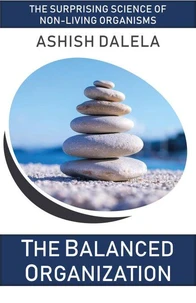Semantic Reasoning. Six Systems of Vedic Philosophy, #5
Par :Formats :
Disponible dans votre compte client Decitre ou Furet du Nord dès validation de votre commande. Le format ePub est :
- Compatible avec une lecture sur My Vivlio (smartphone, tablette, ordinateur)
- Compatible avec une lecture sur liseuses Vivlio
- Pour les liseuses autres que Vivlio, vous devez utiliser le logiciel Adobe Digital Edition. Non compatible avec la lecture sur les liseuses Kindle, Remarkable et Sony
 , qui est-ce ?
, qui est-ce ?Notre partenaire de plateforme de lecture numérique où vous retrouverez l'ensemble de vos ebooks gratuitement
Pour en savoir plus sur nos ebooks, consultez notre aide en ligne ici
- FormatePub
- ISBN978-93-85384-40-0
- EAN9789385384400
- Date de parution13/09/2021
- Protection num.pas de protection
- Infos supplémentairesepub
- ÉditeurShabda Press
Résumé
Nyaya is one of the Six Systems of Vedic philosophy, and Nyaya Sutra is the oldest and most authoritative text on this philosophy. This book translates and comments on this ancient text. Nyaya presents an alternative system of logic and reasoning in which reality exists as a potential, and it manifests an answer based on a question. This question is called "absence" and the answer is called "presence".
We are all combinations of some presence and absence-i.e., some answers and questions. Our interactions with the world are thus described just like conversations between two people. Happiness is created when the answers match the questions and the questions match the answers. Unhappiness is produced when the questions and answers are mismatched. This match or mismatch is based on the meanings in the question and answer; hence all reality must be studied as a text.
It is just like sentences comprised of words and letters, not physical matter, force, or deterministic laws. The sequence of questions and answers is not deterministic because each question can be answered in different ways, and each answer can lead to different questions. Therefore, this scheme of logic is not contrary to free will. Free will in this description of logic is the ability to ask a different question based on a given answer, or the ability to provide a different answer to a given question.
By exercising this choice of changing our questions and answers, the soul can alter its trajectory in the world.
We are all combinations of some presence and absence-i.e., some answers and questions. Our interactions with the world are thus described just like conversations between two people. Happiness is created when the answers match the questions and the questions match the answers. Unhappiness is produced when the questions and answers are mismatched. This match or mismatch is based on the meanings in the question and answer; hence all reality must be studied as a text.
It is just like sentences comprised of words and letters, not physical matter, force, or deterministic laws. The sequence of questions and answers is not deterministic because each question can be answered in different ways, and each answer can lead to different questions. Therefore, this scheme of logic is not contrary to free will. Free will in this description of logic is the ability to ask a different question based on a given answer, or the ability to provide a different answer to a given question.
By exercising this choice of changing our questions and answers, the soul can alter its trajectory in the world.
Nyaya is one of the Six Systems of Vedic philosophy, and Nyaya Sutra is the oldest and most authoritative text on this philosophy. This book translates and comments on this ancient text. Nyaya presents an alternative system of logic and reasoning in which reality exists as a potential, and it manifests an answer based on a question. This question is called "absence" and the answer is called "presence".
We are all combinations of some presence and absence-i.e., some answers and questions. Our interactions with the world are thus described just like conversations between two people. Happiness is created when the answers match the questions and the questions match the answers. Unhappiness is produced when the questions and answers are mismatched. This match or mismatch is based on the meanings in the question and answer; hence all reality must be studied as a text.
It is just like sentences comprised of words and letters, not physical matter, force, or deterministic laws. The sequence of questions and answers is not deterministic because each question can be answered in different ways, and each answer can lead to different questions. Therefore, this scheme of logic is not contrary to free will. Free will in this description of logic is the ability to ask a different question based on a given answer, or the ability to provide a different answer to a given question.
By exercising this choice of changing our questions and answers, the soul can alter its trajectory in the world.
We are all combinations of some presence and absence-i.e., some answers and questions. Our interactions with the world are thus described just like conversations between two people. Happiness is created when the answers match the questions and the questions match the answers. Unhappiness is produced when the questions and answers are mismatched. This match or mismatch is based on the meanings in the question and answer; hence all reality must be studied as a text.
It is just like sentences comprised of words and letters, not physical matter, force, or deterministic laws. The sequence of questions and answers is not deterministic because each question can be answered in different ways, and each answer can lead to different questions. Therefore, this scheme of logic is not contrary to free will. Free will in this description of logic is the ability to ask a different question based on a given answer, or the ability to provide a different answer to a given question.
By exercising this choice of changing our questions and answers, the soul can alter its trajectory in the world.






















